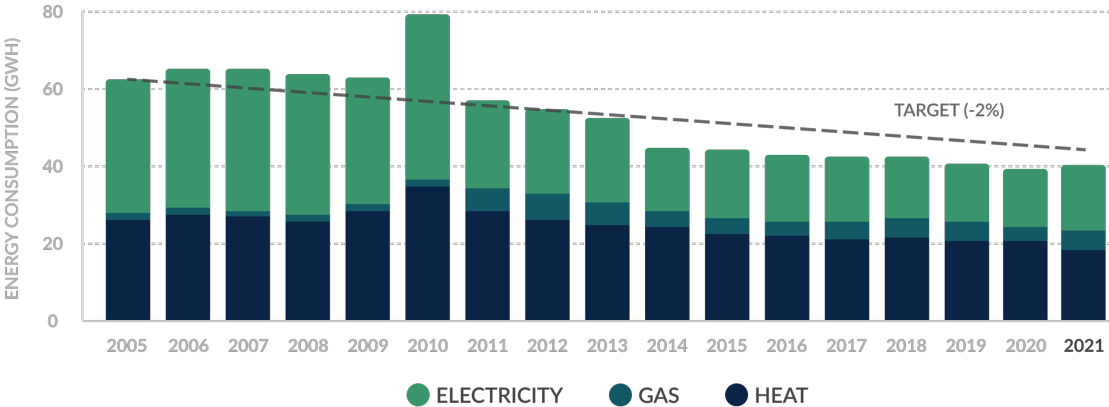UT will offset the CO2 emissions we cause from gas consumption in 2022 and in subsequent years. We do this through Voluntary Emission Reduction (VER)-carbon credits from emission reduction projects. These projects meet the Gold standard for the Global Goals. In addition, we continue to work on further reducing gas consumption on campus: after all, preventing emissions is better than compensating afterwards. This compensation follows from UT's sustainability policy, which can be found at the SEE programme-webpage.
Air humidification laboratories
As nearly all buildings on campus are heated via Ennatuurlijk's heat network (link in Dutch), UT's gas consumption is already relatively low: around 500,000 m3 per year, or roughly the consumption of 333 households.
On campus, gas is mainly used for humidifying laboratories. At present, CFM is investigating the possibility of replacing the current gas-fired steam humidifiers with adiabatic humidifiers, which are powered by electricity. If the first tests are positive, this will be rolled out via a pilot in the Zuidhorst. The current gas-fired steam humidifiers could then eventually be phased out. This would make the vast majority of gas consumption in UT buildings a thing of the past.
Reducing energy consumption
Ennatuurlijk's heat network, which heats almost all UT buildings, produces far fewer emissions than heating with gas. Also, since 2022 100% of the electricity on campus has been green. Yet we continue to work on reducing energy consumption on campus, something the UT has been doing quite successfully since 2005. Most buildings on campus now have energy label A, and the remaining buildings have at least energy label C. In new buildings, sustainability is a key issue: the new ITC building, for instance, will receive energy label A+++. Plans for renovations also always include sustainability as an important point. You can read more about this in the new Long-term Strategic Housing Plan 2023-2032.

Energy consumption at UT declined by more than 30% between 2005 and 2021, despite substantial growth in student and staff numbers
Contribute yourself
As a member of the UT community, you can also contribute to reducing energy consumption on campus. What you can do yourself:
- Turn off the lights when you leave, even when a room is equipped with a sensor (they leave the lights on for up to 30 minutes after a room is empty)
- Turn off screen monitor & screen in meeting/lecture room (except in Teams-rooms)
- Turn off your laptop or PC
- Prevent standby power consumption: don’t leave appliances on standby, but turn them off and unplug them
- Close fume hoods when you’re done with your work
- Take the stairs instead of the lift when able
- Don’t leave windows and doors open unnecessarily, especially when the heating or cooling is on
- Lower the heating by one degree and wear a sweater
- Close doors and windows when you leave a room
- Switch off or remove unnecessary equipment
- Turn off unnecessary lighting when you are present
Do you see unnecessary energy consumption that you cannot solve yourself? Then please report it to your building's service desk.





